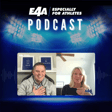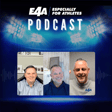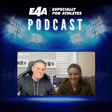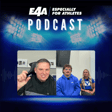
142. Lessons from Charles Barkley on Taking Responsibility
In this episode of the Especially for Athletes podcast, Dustin and Shad break down a powerful interview with NBA legend Charles Barkley that covers anger, blame, and the moment Barkley decided to stop playing with bitterness and start playing for the right reasons. Barkley shares a raw and honest story about how unresolved anger and the desire to “prove people wrong” nearly defined his career—and how one moment of reflection helped him shift his mindset. Dustin and Shad reflect on what it means to “play with an edge” versus “playing on the edge,” and how athletes, parents, and coaches alike can learn from Barkley’s hard-earned wisdom.
Key Takeaways:
- Be 100% Responsible – “She didn’t flunk you. You flunked you.” Barkley’s turning point came when he finally took ownership of his choices.
- Playing With an Edge vs. On the Edge – Passion and intensity are great. But if they’re fueled by hate, it’s only a matter of time before you fall.
- Pre-decide Your Lines – Athletes and parents alike need to know their personal limits before competition starts to avoid moments they’ll regret.
- Competing Without Contempt – Proving others wrong might be motivating—but don’t let bitterness steal your joy or define your character.
- The Power of Maturity – Barkley’s journey reminds us that true greatness isn’t just about skill—it’s about growth, humility, and self-awareness.
Whether you’re an athlete, coach, or parent, this episode is a reminder to stay grounded, play with purpose, and keep your Eyes Up and Do the Work—for the right reasons.
Especially for Athletes:
Website: https://e4a.org
Facebook: https://www.facebook.com/EspeciallyForAthletes/
Twitter: https://twitter.com/E4Afamily
Instagram: https://www.instagram.com/especiallyforathletes/
YouTube: https://www.youtube.com/channel/UCmbWc7diAvstLMfjBL-bMMQ
Join the conversation using #TheSportlightPodcast
Credits:
Hosted by Shad Martin & Dustin Smith
Produced by IMAGINATE STUDIO
See omnystudio.com/listener for privacy information.
Support the show: https://especiallyforathletes.com/podcast/
See omnystudio.com/listener for privacy information.










